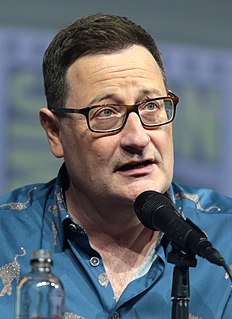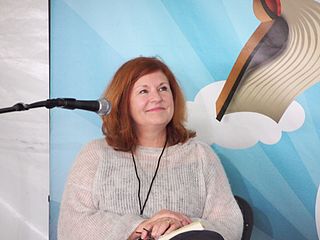A Quote by Chris Chibnall
Often as a writer, you get your first draft out, and then you look and think, 'Now, what have I got here.' You're really just throwing mud at the wall and then going, 'Oh, there's a pattern there.'
Related Quotes
Every first draft sucks, so when you have your favorite novel, and you're like, 'Wow, this is a masterpiece,' and then you write your first draft, and you're like, 'This is really bad,' and then you're like 'I can't do this because this is nowhere close.' When, in reality, the book you loved so much started out just as crappy.
It can take years. With the first draft, I just write everything. With the second draft, it becomes so depressing for me, because I realize that I was fooled into thinking I'd written the story. I hadn't-I had just typed for a long time. So then I have to carve out a story from the 25 or so pages. It's in there somewhere-but I have to find it. I'll then write a third, fourth, and fifth draft, and so on.
Just write. If you have to make a choice, if you say, 'Oh well, I'm going to put the writing away until my children are grown,' then you don't really want to be a writer. If you want to be a writer, you do your writing... If you don't do it, you probably don't want to be a writer, you just want to have written and be famous—which is very different.
Here is this ability to explore ideas, but with minute changes, and then look at the results. Often you get so excited about what you're doing that you think, "Oh, wow, this is just great." And you look at it a week later and you realize you'd been excited by the act of creation, but what you've created is not really exciting when you look at it in cold blood. And so that, to me, is a valuable lesson also.
Looking back six years ago when I had just come from 'The Office' to 'The Mindy Project' and what I was trying to say back then. I feel like we don't revisit our younger idealistic selves, you just get in this pattern of churning these episodes out. Now I was like, "Let's try and get in my mind back then," because my life personally has changed so much, too. I just thought, "What was I trying to say? And now can I make it look like it was all part of one larger story."
Writing 'Men We Reaped' broke me in different ways at different spots in the drafting process. The first draft was hard because I was just getting it out. In some ways, that draft failed. I was really just telling the story, not making assessments - this happened, then this. Just putting those facts down on paper was really painful.






































